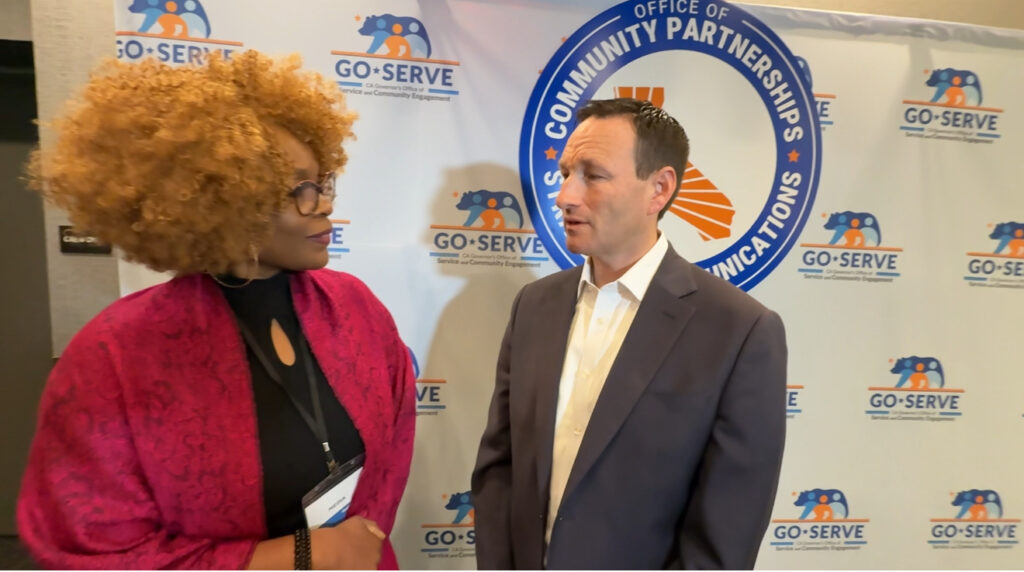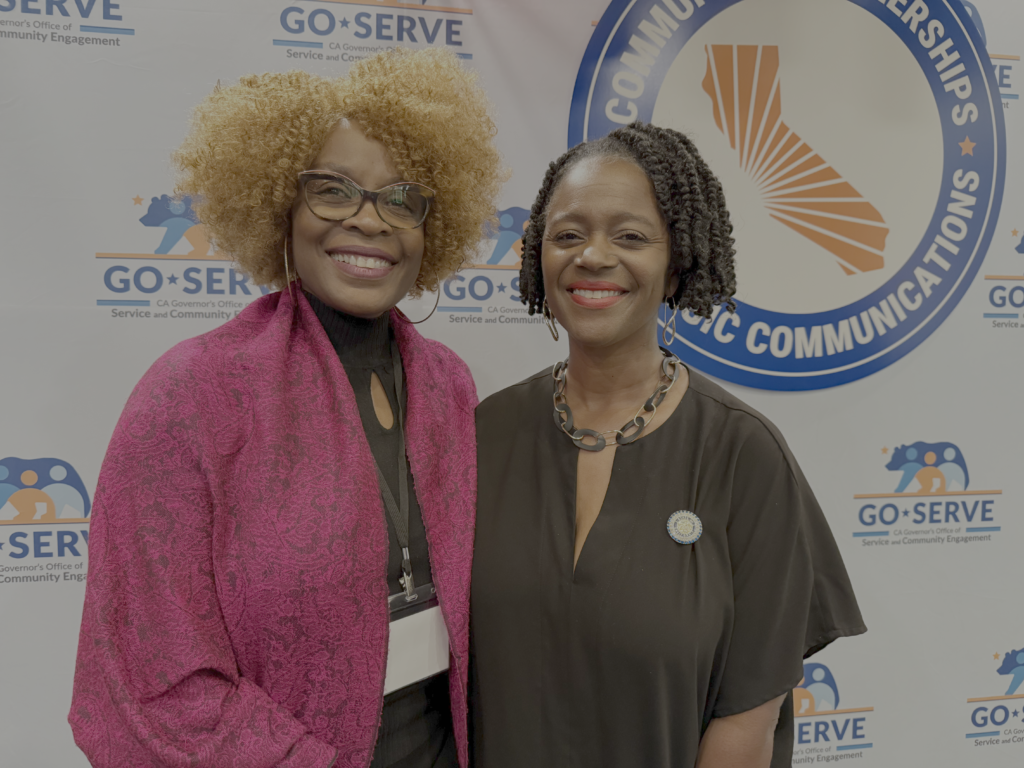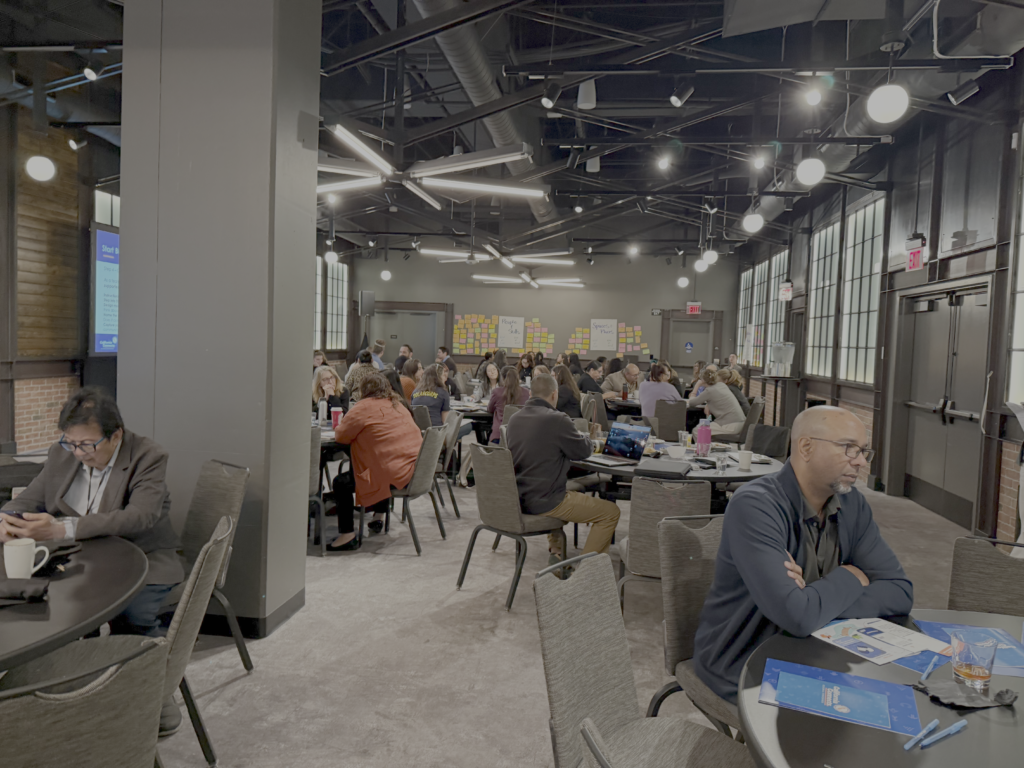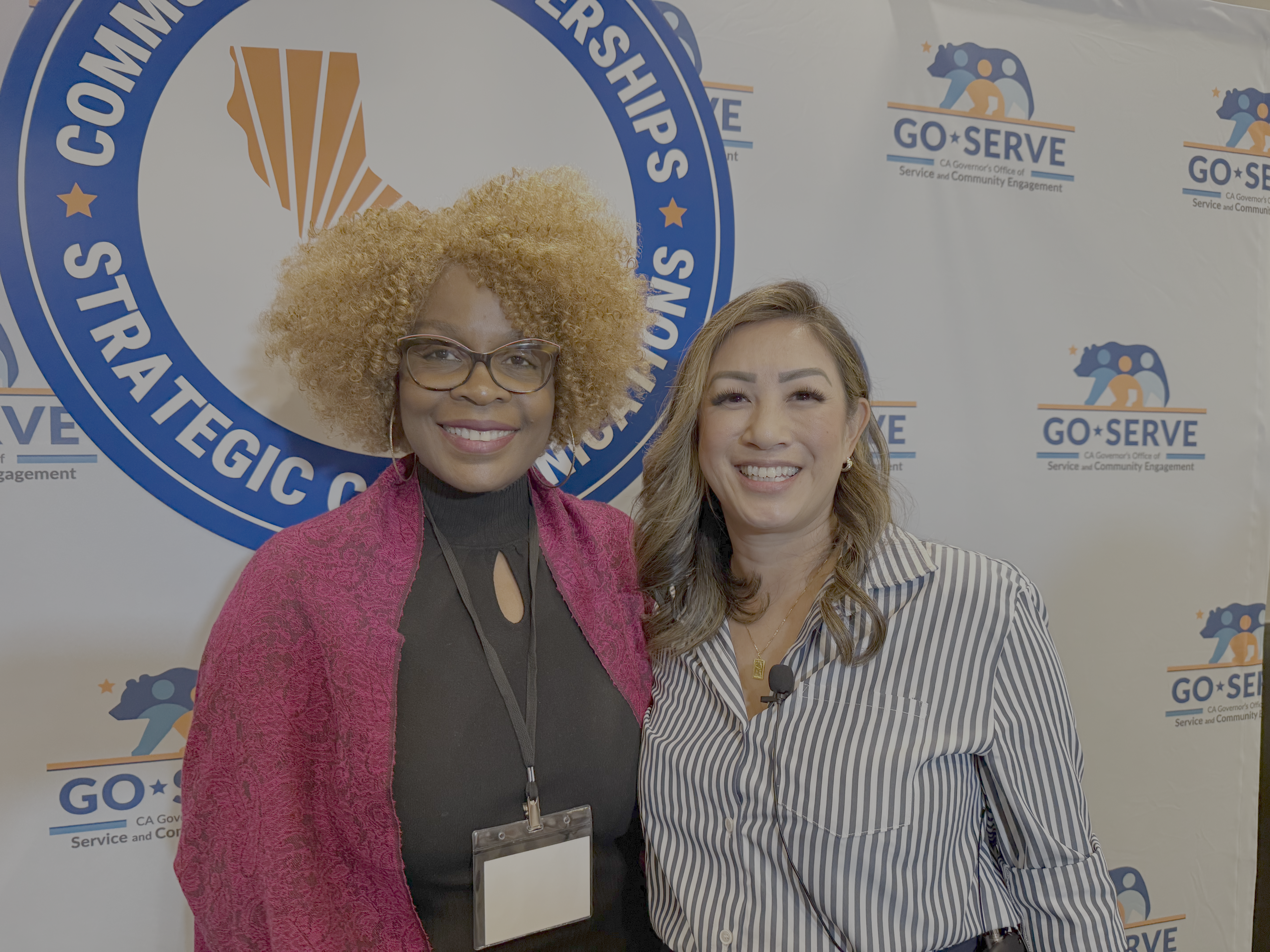Aubrie Fong, OCPSC Acting Executive Director
In a downtown Los Angeles ballroom alive with focused energy and quiet determination, a new model of civic engagement was steadily taking shape. It wasn’t a conference for applause lines or a press event for photo ops. This was California Connects: a first-of-its-kind, state-led convening aimed at building infrastructure—not just visibility—for immigrant and underserved communities across the state.
On October 15, more than 185 community-based organizations, service corps volunteers, nonprofit leaders, ethnic media representatives, and state agency staff gathered for a full day of workshops, direct resource access, and strategy-building. The message was clear: while the federal government remains mired in dysfunction and disconnection, California is stepping up with both hands extended—one offering funding, the other partnership.
As the nation’s fourth-largest economy and home to over 10 million immigrants, California is acutely aware of the stakes. The convening, hosted by the Office of Community Partnerships and Strategic Communications (OCPSC), signals more than symbolic support. It marks an intentional, structural effort to redistribute power, funding, and access to those historically excluded.

Josh Fryday, GO-Serve Director and California Chief Service Officer
Josh Fryday, California’s Chief Service Officer and Director of California Volunteers, grounded the moment in civic purpose. “We’re living in a very difficult time—a time when our federal government is shut down, when many communities feel under attack, and when disconnection is the norm,” he told me during our conversation. “California is taking a different path. We’re coming together. We’re making access easier. We’re connecting people and institutions in real time.”
Fryday’s office oversees key public service initiatives like College Corps, Climate Action Corps, and Youth Jobs Corps. These programs place thousands of Californians in community service roles across the state—from food banks to climate resilience efforts. Crucially, the College Corps program is now open to AB 540 Dreamer students—undocumented young people who have long served without recognition.
“California is what it is because of our immigrant communities,” Fryday said. “They are not a separate population—they are central to our state’s identity, our economy, and our future. Programs like College Corps don’t just pay students to serve—they create a pipeline of civic leadership that reflects our full diversity.”
For Fryday, service is more than charity. It’s a tool to rebuild trust, purpose, and participation. “People find meaning through service. They find connection. That’s how we push back against alienation,” he added.
OCPSC Acting Executive Director Aubrie Fong reinforced the state’s strategy of meeting communities where they are—not just geographically, but culturally and linguistically. Her office, formed in the wake of the 2020 Census and the COVID-19 pandemic, has prioritized trusted messenger networks and ethnic media partnerships to ensure that accurate, life-saving information reaches all Californians.
“We’ve seen the fear, the misinformation, and the feeling of being left out,” Fong said in our interview. “That’s why this convening matters. It’s not about general announcements—it’s about accessible, relevant tools and relationships.”
She pointed to her own family’s experience. “My grandmother got her news from her Chinese-language newspaper. That’s how she understood the world,” Fong said. “We can’t overlook those media ecosystems. Ethnic media is essential.”
But Fong acknowledged the limitations many outlets face, including those like The Immigrant Magazine. “We know ethnic media is underfunded. We’re working to change that,” she said. “Part of our work is pushing other state agencies to see ethnic media as core infrastructure—not an optional add-on.”
During the event, state partners offered practical training: the California State Library’s GR portal for community grants, mortgage relief programs from CalHFA, and new funding streams from the Department of Developmental Services. Participants walked away with more than handshakes—they left with portal logins, eligibility criteria, and names of state contacts to follow up with.
“We don’t want this to be a one-off,” Fong emphasized. “We want it to spark long-term relationships. If every person follows up on one connection they made today, that’s how the infrastructure grows.”

California State Senator Lola Smallwood-Cuevas
State Senator Lola Smallwood-Cuevas brought moral clarity and legislative fire to the day. Representing the 28th District—one of the most racially and economically diverse in California—Smallwood-Cuevas centered immigrants not as recipients of aid, but as foundational architects of the state.
“You are Californians. You belong with us. You work every day to build this state. Without you, California would not be what it is,” she told immigrant attendees in our interview.
She detailed several efforts now underway at the state level: $50 million in legal aid and universal representation for undocumented residents; protections against racial profiling; and urgent calls for immigrant families to enroll in Medi-Cal and CalFresh before federal budget cuts disrupt access.
“These are not just policy points,” she said. “They are protections. And in this climate, they’re essential.”
When asked about the role of ethnic media in this work, Smallwood-Cuevas didn’t hesitate. “Ethnic media is a cornerstone of civic life,” she said. “We’ve invested millions in public media, but we absolutely need more targeted investment in community outlets—especially those serving immigrants. You’re not just reporting. You’re defending democracy.”
That sentiment echoed throughout the ballroom. Whether through College Corps fellows translating health flyers, nonprofit leaders sharing grant templates, or media editors exchanging contact sheets, the day’s energy was unmistakably focused on collective capacity—not individual access.
California Connects was never pitched as a solution to every inequity. But it made a clear declaration: California isn’t just promising inclusion—it’s practicing it.
 In a time when immigrant communities are scapegoated nationally, undercounted institutionally, and overlooked in federal budgets, California’s move to convene, equip, and fund its communities marks a necessary pivot. It’s a model that other states—and the federal government—would do well to emulate.
In a time when immigrant communities are scapegoated nationally, undercounted institutionally, and overlooked in federal budgets, California’s move to convene, equip, and fund its communities marks a necessary pivot. It’s a model that other states—and the federal government—would do well to emulate.
We don’t just need narratives of inclusion. We need mechanisms of it. We need contracts, contact lists, and grant approvals. We need our voices not just quoted—but budgeted for.
In that Los Angeles ballroom, California began to show what that looks like in real time.
#CaliforniaConnects #ImmigrantVoices #EthnicMediaMatters #CivicPower #DreamersInService #CAResources #CommunityFirst #StateLeadership

